
In past lives, Dean Anderson has been a social worker, small business owner, college psychology and philosophy instructor, and world-class couch potato who weighed close to 400 pounds, smoked three packs and drank two six-packs of beer per day, and considered chocolate-peanut butter fudge a well-balanced meal. In this life, Dean earned a personal training certification from ACE, received training as a lifestyle and weight management consultant, and began working for SparkPeople. He writes about attitude adjustment, motivation, men's health, and senior fitness. When not sitting in front of his computer, he can usually be found hiking or biking (he's the bald guy that everyone else is passing).
Read More of 's Blogs:

Can People Really Be Addicted to Food and Eating?
Do you ever feel like you just can't stop yourself from overeating? Are there some foods that are extremely hard for you to resist even when you aren't hungry? Is it very hard to stop eating once you've started, even though your intention is to have just a small amount?
If so, you're definitely not alone. But what's going on here? Is it possible you might be addicted to food?
Not long ago, most experts would have said "no." The prevailing wisdom was that people with the right biological susceptibility might get addicted to drugs or alcohol, but food was just not an addictive substance in the same league with, say, alcohol, crack cocaine or meth. After all, people don’t get addicted to broccoli, oatmeal, or chicken breasts. Even though eating certain foods (usually refined sugars and/or fatty, salty foods) is known to increase appetite in some people and/or turn off the satiety signals that normally would tell them when to stop eating, and even though certain psychological problems can lead some people to become compulsive eaters, these problems were not seen as the same kind of thing as a true substance addiction.
More recently, though, the evidence has been painting a different picture…
Posted 1/19/2011 6:00:00 AM By: : 351 comments 141,305 views

Change This Bad Habit, Accomplish Anything
There are a lot of important pieces in the weight loss puzzle. Good tools for tracking nutrition and exercise, reliable information, social support to boost motivation and help you stay focused--all of these things are crucial. But even with all this, success still comes down to how well you can help yourself make good choices in the moments when those choices actually need to be made.
All of us have to cope with feelings, thoughts, impulses, and situations that can make it very hard to stay mindful, motivated, and disciplined when it’s time to actually decide what we’re going to eat and whether we’re going to get up and do some exercise. Learning how to effectively coach yourself through these challenges is crucial if you want to keep moving forward. And the first step here is paying careful attention to how you talk to yourself when things go well, and when they don’t.
Posted 1/12/2011 12:50:07 PM By: : 123 comments 38,614 views
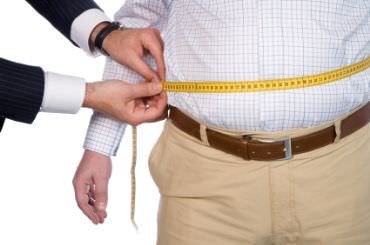
Putting some Resolve in my New Year's Resolutions
I don’t normally make New Year’s resolutions, mainly because my history of sticking to them past the first week or two of January is pretty bleak. The times when I’ve actually been successful at changing my behavior (especially behavior related to eating and exercise) didn’t begin with a special date or a resolution for the new year. They began when I realized I was in trouble, and finally had to acknowledge that I really needed to start changing my behavior NOW—no more putting things off, even for a few days.
This year, I find myself in that kind of situation today, which also happens to be Jan. 1. So, I figure I might as well take a little time to write down exactly what it is that I think needs to change, and some ideas about how I’m going to make those changes happen.
Posted 1/1/2011 2:30:00 PM By: : 132 comments 25,199 views

And the Award for Worst New Food Product of the Year Goes to…
It’s conventional to wait until the end of the year to decide which new food product deserves the award for worst of the year. But once in a while, a product comes along that's such an obvious choice there’s no need to hold off giving the award until all the entries are in.
Next week, KFC is introducing just such a product: their new Double Down sandwich.
It’s not entirely clear how this product actually qualifies as a “sandwich,” since there’s no bread involved. It’s two pieces of bacon and two pieces of cheese served between two pieces of fried chicken. There’s nothing even remotely resembling a vegetable—not even ketchup.
Given all the public concern lately about eating balanced meals and reducing the health risks associated with a high-fat, low fiber diet, you have to wonder: What was KFC thinking? And the answer to that question might just be more disturbing than the Double Down itself.
Posted 4/8/2010 5:00:00 PM By: : 540 comments 54,835 views
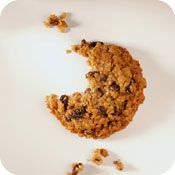
Could you be addicted to junk food?
Do you often find it hard to stop eating certain foods once you’ve started—especially foods high in sugar, salt and/or fat?
I know I've often found myself on the losing end of one of those “bet you can’t eat just one” wagers when it involves sweets, chips, sausages or something similar. If you're in the same boat, your brain just might be addicted to junk food.
This is especially likely if you happen to be a rat, according to recent research reported in this article from HealthDay. If you’re a human, using the word “addicted” may (or may not) be a little strong, but this research definitely does add another piece to the puzzle of understanding why it can be so hard for many people to “just say no” to overeating certain foods.
Posted 4/1/2010 6:00:46 PM By: : 96 comments 27,198 views
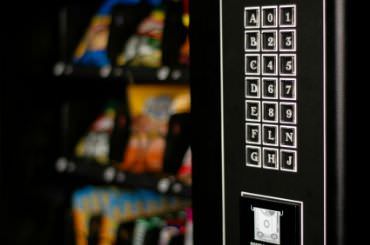
Would taxes on junk food promote healthier eating?
According to a study published this week in the Archives of Internal Medicine, when the price of junk food goes up, people eat less of it, their weight goes down, and blood sugar levels improve.
The study, which is described in more detail here, followed over 5,000 people for a period of 20 years, tracking their food consumption, height, weight, and blood sugar levels. Researchers also tracked changes in food prices during this same period, and found that incremental increases in the prices of soda and delivery pizza were associated with incremental decreases in consumption of these items. For every 10% increase in cost, there was a 7% decrease in the number of soda calories consumed, and an 11.5% decrease in pizza calories consumed. Likewise, a one dollar increase in soda cost was associated with a decrease in overall calorie intake of 124 calories per day (on average), and a decrease in body weight (2.2 pounds on average). This was true even though the “real” cost of soda and delivery pizza actually decreased over the 20 year period when prices were adjusted for inflation.
Does this mean that we can (or should) use taxes and/or surcharges on junk food items to encourage people to use less them of them?
Posted 3/11/2010 5:42:53 PM By: : 300 comments 44,257 views
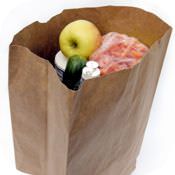
Are You Eating More Because of Health Claims on Food Labels?
Low fat. Reduced calorie. Zero trans-fat. All natural. Organic. Is it possible that choosing foods advertising these and other similar health claims can actually increase overeating and lead to unhealthier food choices?
Apparently so, according to a growing body of research.
The concept of “health halo” has been around for several years now. Basically, the idea is that packaging that makes health claims about food items (or brands, restaurants, etc) often results in people eating more total calories, and more unhealthy foods, than they otherwise might.
As you can see from this article, there are several ways that health halos can lead to undesirable effects. One is that people tend to seriously underestimate the number of calories actually in a food item that’s labeled “low-fat” or "reduced calorie." This may lead people to increase the portion size they think is appropriate, or to add additional items to their meal, as when someone orders a grilled chicken sandwich instead of a bacon double cheeseburger, but then adds a large soda and a desert because they assume they can “afford” these extras and still come out ahead on calories. Either way, the research indicates that many people often end up eating up to 50% more total calories when choosing foods with health halos.
Posted 3/2/2010 6:10:39 PM By: : 86 comments 24,057 views
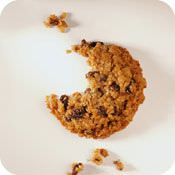
Binge Eating to Become an Official Mental Disorder
The American Psychiatric Association (APA) has just released a preliminary draft of the revisions planned for it’s Diagnostic and Statistical Manual of Mental Disorders (DSM). This is the manual that medical and mental health professionals use to determine when individuals are suffering from a mental illness, rather than a temporary emotional or situational problem. It’s also used by insurance companies to determine which illnesses and treatments they will cover.
The new Manual (DSM 5) will include binge eating as a distinct eating disorder, alongside anorexia nervosa and bulimia nervosa, which have been included in previous editions of the DSM.
Does this mean that, if you sometimes have trouble stopping after two or three cookies or a few slices of pizza, you’ve got a clinical eating disorder? Probably not. Binge Eating Disorder has some very specific characteristics, and involves a persistent, frequent, and very upsetting pattern of overeating that goes well beyond the occasional “I can’t believe I ate the whole thing” situation that we’re all familiar with.
Posted 2/17/2010 5:13:29 PM By: : 151 comments 28,251 views

Childhood Obesity: Is total TV watching time the problem, or is it the commercials?
It’s been documented for quite a while that there’s a strong link between TV watching and obesity in children. The assumption has usually been that the time a child spends watching TV reduces the time spent on physical activity, but this new research indicates things may not be this simple.
When researchers from UCLA recently studied the TV and video viewing activities of 2000 children, they found that there was no association at all between viewing time and obesity for those children who watched videos or other commercial-free programs. But that picture changed when children were watching programs that included commercials. Researchers found that the more commercials the child was exposed to, the more likely it was that the child would be obese. This was especially true for children under 7.
Posted 2/11/2010 5:23:17 AM By: : 113 comments 22,657 views

How Much Sitting is Too Much?
Several studies in recent years have established that there is a strong connection between how much time you spend sitting and your risk of significant health problems (especially obesity and diabetes) and even premature death. Coach Nancy recently blogged about some of this research here.
A new study reported this week indicates that even as little as a few hours of continuous sitting causes metabolic changes that increase blood sugar levels and decrease the amount of fat used as fuel, therefore increasing the amount that goes back into storage as body fat.
It's important to understand that the issue here is not just that you burn fewer calories when you're sitting around. Long periods of sitting actually cause unhealthy changes in your metabolism.
Posted 1/21/2010 6:00:00 PM By: : 198 comments 68,130 views
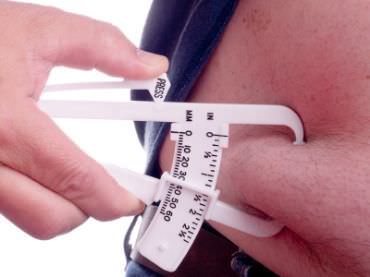
Getting Off to a Good Start—Again
When it comes to my health and fitness efforts, the start of a new year is usually not a big deal for me any more. It used to be--I have a long history of new years that started with lots of resolutions to eat healthy, exercise, and lose weight. But those good intentions never lasted very long, and I ended most of those years weighing more than when I started, getting myself up to about 400 pounds in the process.
Then something changed. I’m still not sure what it was, exactly—maybe I just got tired of feeling miserable all the time, or scared about what I was doing to my health. Anyway, in 2003, something clicked, and I finally started getting serious about changing my lifestyle, not just my weight. 18 months later, I had lost 170 pounds and gotten myself into pretty good shape for a 55 year old guy. And thanks to Sparkpeople, I was able to keep that weight off for almost 5 years.
But then came 2009…
Posted 1/11/2010 5:47:12 PM By: : 286 comments 38,152 views
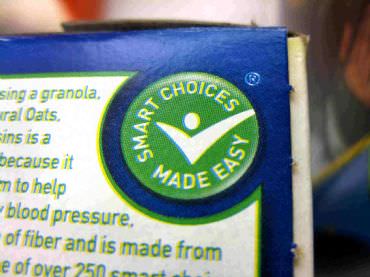
Froot Loops Qualify for the new “Smart Choices” Label (?!)
You’ve probably seen those new green checkmark labels that are starting to show up on lots of packaged food products in your grocery store. The label is intended to be a guide for consumers who want to make healthier choices when shopping for groceries. It’s part of a new program called “Smart Choices” that’s sponsored by a group of 10 major food producers, including Kellogg’s, General Mills, ConAgra Foods, Tyson Foods, and PepsiCo.
In order to display the Smart Choice label, a product must meet nutritional guidelines established by the program, which set limits on the amount of sugar, salt, and fat a product can contain, and specify that it should have a certain amount of desired nutrients like fiber, vitamins and minerals.
Sounds pretty good, right? Many people don’t pay much attention to the food labels on these same products, so having a simple label prominently displayed on the front of the package could be a good way to let people know which products are more nutritionally sound than others.
But as usual, the devil is in the details—in this case, the details of the program’s nutritional guidelines. It seems that both Froot Loops and Cocoa Crispies are eligible for the Smart Choice label, as are both lite and regular mayonnaise, and any frozen or packaged meals with up to 600 milligrams of sodium in them (25% of the recommended maximum intake).
What’s going on here?
Posted 9/10/2009 5:23:48 PM By: : 261 comments 33,554 views

Will You Still Need Me, Will You Still Feed Me, When I’m (2)64?
With apologies to John, Paul, Ringo and George.
If you’re a regular follower of this blog, you know that 2009 has been a pretty rough year for me, health-wise. It started off with open-heart surgery to replace a bad heart valve, followed by 3 more week-long hospitalizations for post-surgery complications, some nasty problems with depression/PTSD, and most recently, a broken ankle.
While prospects for staying out of the hospital for the rest of the year look pretty good (knock on wood), none of these problems is fully resolved yet. I’m still working very reduced hours, and spending an awful lot of time with doctors and therapists.
But there’s another part of this story that I haven’t talked about here before, probably because it scares me even more than all these other issues, and I haven’t gotten a handle on the problem myself yet.
Posted 8/24/2009 12:34:31 PM By: : 483 comments 28,780 views

Your Mind, on Exercise--Or--Why Exercise Won't Turn You Into a Cookie Monster
This blog is the second half of my personal response to TIME’s recent article on “Why Exercise Won’t Make You Thin.” In my last blog, I talked about the biological relationship between exercise and fat loss; here, we’ll be looking at whether there’s any truth to the claim that exercise causes excessive appetite and “compensatory” overeating, making fat loss more difficult.
For those of you who like to cut straight to the bottom line, my answer to this question is: No.
There’s really no reason at all for you to be afraid of exercise if you want to burn fat and lose weight. Just the opposite, in fact. You will need to make sure your meal plan is right for your activity level and weight loss goal, and then stick to that amount of eating as well as you can. But exercise is simply not going to turn you into someone who can’t control your own appetite and eating behavior—unless, of course, that’s what you expect or want it to do.
For those of you who like to know more about the nuts and bolts, read on about the “soul of success”, and find out what can help you stay in charge of your eating no matter how much you exercise.
Posted 8/13/2009 5:49:55 PM By: : 64 comments 24,839 views

TIME's Great Exercise Debate: What's In It for You?
If you follow health and fitness news, you’ve probably seen the cover story in the current issue of TIME magazine: Why Exercise Won’t Make You Thin.
Unfortunately, this article is riddled with headlines and statements that seem more designed to attract attention and readers than to provide useful information—a common problem in this age of declining readership. But if you can get past the sensational headlines and faulty logic (a connection between two things doesn't mean one causes the other), the actual information in the article is nothing new or surprising.
We’ve known for a long time that, while exercise is clearly one of the foundations of good physical and mental health, it is not by itself enough to produce substantial weight loss. That takes a healthy diet with fewer calories in it than you need to maintain your current weight at your current activity level, whatever that activity level may be. You can exercise ‘til the cows come home, but if you still eat more than you need, you’re not going to lose any of that extra fat you’d like to get rid of. This may be news to Mr. Cloud, but not to the rest of us.
Cloud’s article does go one step further by speculating that exercise may actually be one of the reasons people overeat, and that's where he starts getting into trouble. This speculation is based on the results of several recent studies, described in the article, which indicate that exercise may have three common “side effects” that could, in theory, make weight loss more difficult for many people:
Side Effect No. 1: Exercise increases appetite, often leading people to eat more than they would otherwise, offsetting the calorie burning benefits of their exercise, or even leading to a calorie surplus.
Side Effect No. 2: Exercise weakens your “self-control muscle.” If you use up your limited capacity for self-control by forcing yourself to stay on the treadmill for 60 minutes, it’s going to be much harder for you to resist treats and snacks, and stick to your diet plan for the rest of the day.
Side Effect No. 3: Exercise (especially vigorous, challenging exercise) can lead to tiredness, muscle soreness and other problems which actually reduce the amount of normal physical activity the individual engages in during the day, reducing overall calorie expenditure.
There’s not much doubt that these problems can happen, or even that they do happen for lots of people. But are they inevitable or unavoidable? Do they inevitably have to interfere with your weight loss efforts as much as this article seems to suggest? I suppose they could—IF you were a slave to your appetites, and incapable of figuring out how to feed yourself what you actually need.
But is that what you are? Not according to the tons of scientific evidence and personal testimony from successful weight losers that Mr. Cloud left out of his article.
The real question here, in the end, is whether any of this scientific evidence means you should change your approach to exercise in order to meet your weight loss goals. In this blog and in Thursday’s blog, you’ll find some info you’ll want to know in order to figure this out for yourself.
Posted 8/11/2009 6:29:45 PM By: : 241 comments 129,321 views
‹ Back Read More Entries ›

.png)


